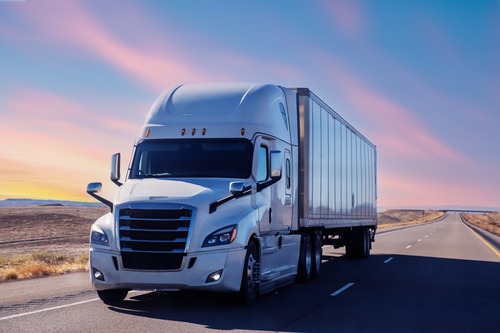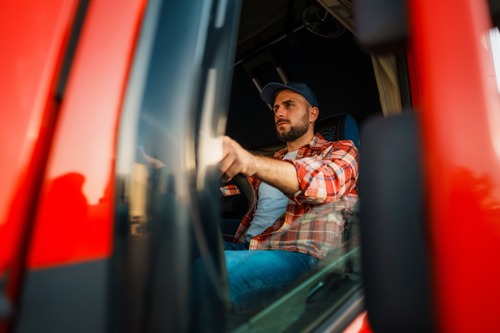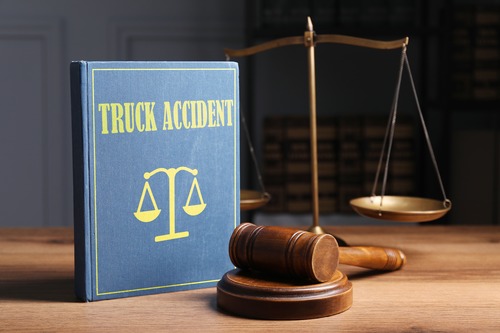At Connell Law Firm, we are a family-run practice based in Lugoff, South Carolina, committed to delivering justice for our clients since 1993. Our attorneys represent victims who have been harmed by the wrongdoing and negligence of people, companies, and government agencies. We also provide legal representation to defendants in criminal cases and to people engaged in business transactions.
Truck accidents often cause serious injury, property damage, and financial loss. In South Carolina, identifying who is legally responsible is a key part of recovering compensation. One important legal concept in these cases is vicarious liability, which allows an employer to be held liable for the negligent actions of a truck driver.
In this blog, you will learn how vicarious liability applies to South Carolina truck accidents, who can be held responsible, and how working with an experienced Camden truck accident lawyer can help you build a strong claim for compensation.
What is Vicarious Liability?
Vicarious liability is a legal concept that allows one person or entity to be held responsible for the actions of another. In South Carolina truck accidents, this often applies to employers being held accountable for the negligent acts of their truck drivers.
Definition and Legal Foundation
Vicarious liability comes from the doctrine of respondeat superior, which means “let the superior answer.” This principle holds that an employer can be vicariously liable for actions committed by an employee while performing job-related duties. It applies even if the employer did not directly cause the harm.
Scope of Employment
For vicarious liability to apply, the employee’s actions must fall within the scope of employment. This means the truck driver must be doing something related to their job when the accident occurred. For example, if a driver causes a truck crash while delivering cargo on a scheduled route, the employer may be held liable.
Application to South Carolina Truck Accidents
In truck accidents, a trucking company can be held vicariously liable if the driver is acting on behalf of the company. South Carolina courts look at factors such as control, supervision, and job duties to determine if the company should be held responsible. The legal relationship must be clear, and the conduct must be connected to employment.
Employers vs Independent Contractors
Vicarious liability generally applies to employees, not independent contractors. However, some trucking companies misclassify drivers to avoid liability. Courts in South Carolina may still find a company liable if it exercises control over how the driver performs the job.
Why It Matters
Understanding vicarious liability helps injured parties identify who can be held responsible for harm. It allows victims of a truck accident to pursue compensation from employers, not just individual drivers. This can improve the chances of full recovery for injury, property damage, or wrongful death.
South Carolina Law and Vicarious Liability
South Carolina law sets clear guidelines on when an employer can be held vicariously liable for a truck driver’s actions.
Legal Doctrine and Statutory Reference
South Carolina applies the doctrine of respondeat superior to determine vicarious liability. This doctrine allows a person or company to be held responsible for the negligent actions of another when a legal relationship exists, such as employer and employee. Although South Carolina does not have a single statute solely dedicated to vicarious liability, it is grounded in established case law and general tort principles. In public sector cases, South Carolina Code § 15-78-70 outlines when a government agency can be held liable for acts of its employees, reinforcing the principle of imputed liability.
Court Interpretation of Employer Responsibility
South Carolina courts examine whether the employee was acting within the scope of employment at the time of the truck crash. If the act was committed during work hours, while performing a job duty, and was related to the business, the employer may be held accountable. Courts will look at supervision, control, and benefit to the employer when deciding if liability applies.
Case Example and Legal Precedent
In several decisions, South Carolina courts have held trucking companies liable when drivers committed negligent acts while performing job-related tasks. These rulings emphasize that a company does not need to directly cause the injury to be found liable. The key issue is whether the driver’s conduct was job-related and occurred while acting on behalf of the employer.
Importance in Truck Accident Claims
South Carolina law gives injured parties the right to seek compensation from both the driver and the employer. When a trucking company is held vicariously liable, the victim may have access to greater financial resources to cover injury, vehicle damage, and other losses. This reinforces accountability for fleet owners and emphasizes proper hiring, training, and supervision.
Who Can Be Held Vicariously Liable in a Truck Accident?
In a South Carolina truck accident, more than one party may be held vicariously liable depending on the relationship to the driver and the circumstances of the crash.
Trucking Companies
A trucking company is the most common party held vicariously liable after a truck crash. If the driver is an employee and causes harm while performing job duties, the company can be held responsible under the doctrine of respondeat superior. This includes situations where the driver was delivering cargo, operating a company-owned vehicle, or driving within assigned work hours. The company may also be liable if it failed to enforce safety policies or conduct proper background checks.
Employers and Fleet Operators
Employers who manage commercial fleets can be held vicariously liable for negligent actions committed by their drivers. Courts look at the degree of control the employer has over the vehicle, the schedule, and the job being done. If the employer benefits from the driver’s conduct and has authority over the work, the employer may be held responsible for injuries or damage caused during the job.
Parent Companies
In some cases, a parent company may be held vicariously liable for the conduct of a subsidiary or driver working within a broader corporate structure. This happens when the parent company directs operations or exercises control over daily business decisions. The court will examine contracts, training protocols, and whether the parent had knowledge of the driver’s job duties.
Vehicle Owners
If the truck is owned by a company and operated by an employee, the owner can also be held accountable. Ownership alone does not prove liability, but if the owner permits an unqualified or unsafe driver to use the vehicle for business purposes, responsibility may be shared. Courts consider whether the owner had knowledge of the driver’s employment and allowed the use of the vehicle for work-related tasks.
Shippers and Brokers
In limited cases, a shipper or freight broker may face vicarious liability if they exert control over how cargo is transported. This includes instructing drivers on routes or timelines, or ignoring red flags about driver qualifications. If the shipper acts as a principal and directs the actions of the driver or trucking company, it may be held liable under agency law.
Independent Contractors
Drivers classified as independent contractors are usually not covered under vicarious liability. However, courts may disregard the label if the employer maintains control over how the driver performs the job. If the relationship resembles employment in practice, the company may still be found responsible. Misclassification to avoid liability is a common issue in trucking cases.
How a South Carolina Truck Accident Lawyer Builds a Vicarious Liability Case
A truck accident lawyer in South Carolina uses detailed investigation and legal strategy to prove vicarious liability and hold all responsible parties accountable.
Identifying the Legal Relationship
The first step is to determine the relationship between the truck driver and the company. A lawyer will review employment contracts, driver logs, dispatch records, and payment structures. The goal is to show that the driver was an employee, not an independent contractor. If the employer controlled the work schedule, assigned routes, or provided the vehicle, the company may be held vicariously liable under the principle of respondeat superior.
Collecting Evidence of Employer Control
A lawyer gathers proof that the employer had control over the truck driver’s job duties. This includes training records, company safety policies, and supervision practices. If the employer controlled how and when the work was done, the court may find that the negligent acts occurred within the scope of employment. Connell Law Firm uses accident scene evidence, company documents, and employment history to support these claims.
Analyzing the Truck Crash Circumstances
The lawyer examines the facts of the truck accident. This includes reviewing the time and location of the crash, the cargo being hauled, and whether the driver was on a company route. If the crash happened while the driver was performing a job-related task, the employer can be held responsible. Connell Law Firm reviews driver fatigue, improper cargo loading, and safety violations to build the case.
Investigating Company Negligence
In addition to vicarious liability, a lawyer may also investigate direct negligence by the trucking company. This includes failure to perform background checks, poor supervision, or lack of driver training. If the company ignored red flags or violated safety regulations, it can be held liable for contributing to the accident. Connell Law Firm uses this evidence to strengthen the overall claim.
Using Expert Testimony and Crash Analysis
Truck accident cases often require expert input. A lawyer may consult with accident reconstruction experts, safety compliance professionals, and medical specialists. These experts help explain how the company’s actions or omissions contributed to the crash. They also support the claim that the employer had a duty to prevent harm and failed to meet that responsibility.
Filing the Legal Claim
Once the evidence is ready, the lawyer files a legal claim against the truck driver and the employer. This includes claims for personal injury, property damage, and in some cases, wrongful death. Connell Law Firm prepares each case with the goal of holding the company financially responsible and securing full compensation for the victim.
Consult With an Experienced Camden Truck Accident Lawyer ASAP!
If you or someone you care about has been hurt in a truck accident, it is important to act quickly and protect your legal rights. At Connell Law Firm, our experienced Camden truck accident lawyers understand how to build strong cases using South Carolina’s vicarious liability laws.
Contact us at [phone] for a free claim review today!




